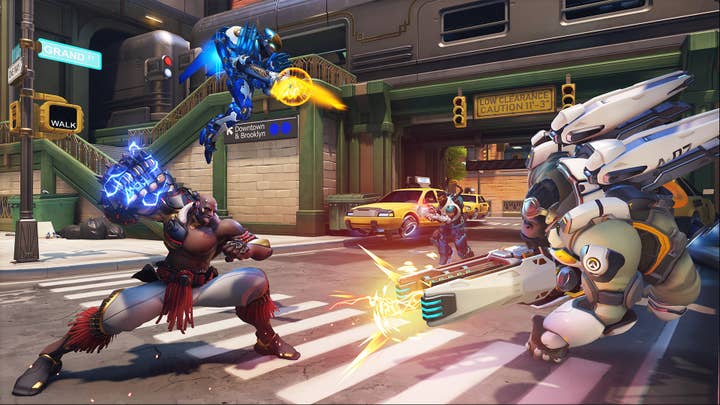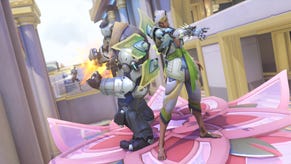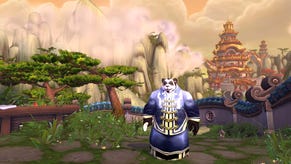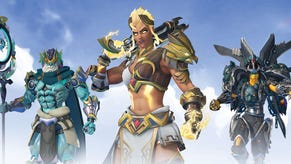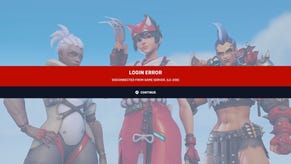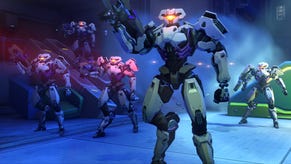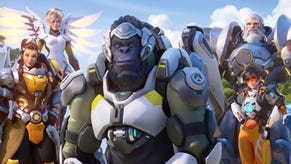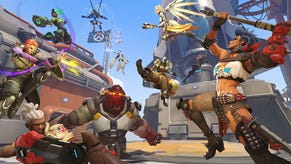Overwatch 2 | Critical Consensus
The follow up to the 2016 hero shooter is here but critics debate whether it feels like a full-on sequel
When Activision Blizzard released the hero shooter Overwatch in 2016, it was met with positive critical and consumer reception.
Over the years, the game went on to see multiple additions and updates. It also inspired a number of games similar to itself: a colorful cast of characters with various roles, and an assortment of abilities. October 4 marked the release of its sequel, Overwatch 2 (OW2) across multiple platforms.
While Overwatch 2 is technically an overhaul of the previous game and not a separate new release with new heroes, and multiple changes, critics judged it as though it is a proper sequel to the original.
As of writing, the game has a PC Metacritic score of 81, based upon 18 critic reviews.
While more scored reviews are on pace to come in, it's rated lower than the original, which pulled a score of 91.
Within The Verge's Overwatch 2 Review, Ash Parrish expressed that the shooter has an identity issue.
She said that a numbered title implies that a game will offer an experience that's different from the original. As of now, the game feels very familiar to those who have played it over the years. Parrish noted that time away from the first game didn't present a problem with Overwatch 2's similar control scheme for example.
"The same buttons trigger a melee attack or your primary fire or your special 'ultimate' attack," Parrish wrote. "The different strategies for the multiple game types also remain unchanged. Even the new push map type is so reminiscent of the payload game modes that the old strategy of 'get on the payload, Shinji' works just as well for it as it does the old mainstays of Hybrid and Escort."
At Metro, Cheri Faulkner also echoed the sentiment of the shooter’s sense of familiarity.
"Overwatch 2 has broadly the same gameplay and game modes as its predecessor, wrapped up in a shiny new package," Faulkner said in the 9/10 review, she explains that "its first-person shooter mechanics have never been unusual in themselves, even if the original did coin the phrase 'hero shooter'…"
Although the game felt like old stomping grounds, Faulkner emphasized that it still felt new enough for veteran players via some of its changes.
"As an existing Overwatch player heading into Overwatch 2, the difference is already striking," she added. "Gone are player levels and player frames, that show off your level and competitive rank, in favor of customizable titles and player cards."
"Seeing a player join your team with a grandmaster title used to fill your teammates with confidence but with the removal of these ranks comes the perception of a fairer playing field."
IGN's Simon Cardy opened his assessment of the game with the question: "Is Overwatch 2 truly a sequel?" His 8/10 review for the game explained that the experience feels more like an update.
"I can say that while it's less of a reinvention and more of an evolution of the intense, nuanced, and brilliantly colorful team-based battle that made its predecessor so enjoyable, it still brings enough new things to the table that it feels like its own distinct game and not simply Overwatch 1.5," he wrote.
Cardy was rather frank when answering his own question when playing the game in its current iteration.
"…if the pertinent question to ask about Overwatch 2 is simply if it’s a fun game, then the answer right now is yes. It's still a fundamentally great hero shooter, just one that is perhaps not currently operating at the towering height of its powers."
While reviews pointed out that the shooter felt similar, they did highlight that the new additions made the game feel different enough. Changes which include new heroes such as Sojourn, rebalanced characters and shifts in team compositions, as the game now only assigns five players to a team instead of its original six.
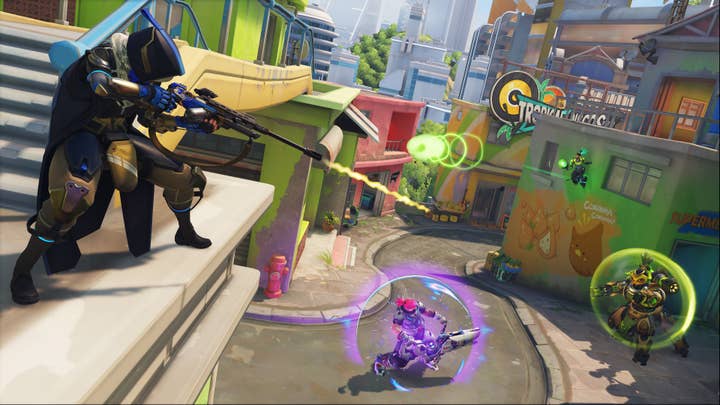
Among the new content, Faulkner highlighted "push", which replaces the original title's assault mode. It involves a team working together to help a robot move its barricade to the end. If either side fails, the group that has traveled the furthest wins.
"The new objectives and fresh approach to what is still a very traditional Overwatch experience make it much more exciting and the combat also feels more balanced," she said.
"In typical attack-defend maps, it can be much more difficult for the attacking team to progress through a strong defense, but in push mode the playing field feels more even when facing a team of similar skill to yourself."
Cardy said that the shift from 6v6 to 5v5 player matches was a notable update for Overwatch 2. This also included how heroes’ roles changed such as those for tank characters, who now have to play a bit more aggressively.
"On one hand, this huge shift in team composition is a thrilling breath of fresh air, and something significant to set Overwatch 2 apart from its predecessor," he explains. "It's a true test of skill that promotes aggressive play and gives 1v1 fights more significance than before."
However, he adds that the team composition change isn't without its downsides when compared to the first game.
"On the other hand, Overwatch 2 appears to be moving away from the tactical teamplay that originally made it unique among shooters. It just feels like some of that satisfying, team-centric magic has been lost in the process of shifting to 5v5."
Although mostly positive, not all of the new updates and systems landed favorably among critics. One point of contention was the matter of the game becoming a free-to-play shooter. The game now features a battle pass, which allows players to unlock heroes the more experience they gain, i.e the more they play.
"The new battle pass progression feels slow, so slow that it might better tempt players to just buy the premium battle pass. It was difficult enough to gain battle pass experience during the review period as a lot of the games were formatted as custom matches that do not grant exp," Parrish wrote.
"The times when the server was populated enough to support queueing for quick play matches, the exp I did receive made it seem like it'll be a tough slog for casual players to level."
She further suggests that the game is perhaps asking casual fans to dedicate too much time to unlock heroes.
"I get that the idea isn't for players to blow through 80 levels of battle pass too early in a nine-week season before it restarts. But I still think it should be at least possible for off-and-on players to finish without chaining themselves to a desk, and right now, it doesn’t feel like it is," she said.
Overwatch 2 did not receive a warm reception from all reviewers; PCGamesN's Lauren Bergin gave the hero shooter a 6/10 in her review. She noted that while more content is slated to release, the current state of Overwatch 2 is best described as competent.
"Overwatch 2 in its current state isn’t bad, but it isn’t good either," she explained. "The improved UI and battle pass bring it in line with competitors like Apex Legends and Valorant, while the addition of Kiriko adds some much-needed spice to the long-neglected support role. Aside from that, though, little has changed."
Alyssa Mercante of Gamesradar said in her unscored review of Activision Blizzard's shooter, it's in a transitional place between an update and fully fleshed follow up.
"Sure, Overwatch 2 is shiny and new – but for who?" - Alyssa Mercante
"Overwatch 2 has been difficult to pin down ever since it was announced in 2019 – familiar, and at times wholly unrecognizable – and that feeling hasn't dissipated now that I've sunk hours into it," she wrote.
Mercante notes that the game has updated visuals, new maps, gameplay modes and so on. However, the overall experience could feel disorientating for fans of the original Overwatch.
"Overwatch 1 went through many iterations during its lifetime, launching as an accessible hero shooter before the Overwatch League came along and upped the competitive ante at even low-skill levels," she explains.
"But Overwatch 2 doesn't feel like a natural progression, and while change is expected of a sequel, such drastic alterations to the core Overwatch DNA – particularly when the original game is no longer available – could risk alienating long-term players. Sure, Overwatch 2 is shiny and new – but for who?"
